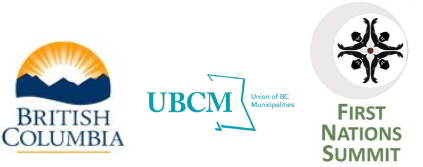CivicInfo Library
Joint Indigenous and Local Government Initiatives and Relations

< Previous Resource 14 of 397 Next >
Cowichan Valley gets Funding to Develop Evacuation Routes
The Cowichan Valley is set to benefit from the funding from the B.C. government for the development of evacuation routes in the East and Central areas.
The Cowichan Valley Regional District is the recipient of $147,500 in funding, says New Democrat MLA Doug Routley. It also involves collaborative efforts with regional partners including Duncan, Ladysmith, Lake Cowichan, and North Cowichan.
“Planning for evacuation routes in Cowichan will help people stay safe in case of emergencies, and get to a safe place when they need it. This kind of planning ahead is key to climate preparedness in our region and this funding will support our continued work to keep people safe,” Routley said.
The B.C. government is providing funding to facilitate the development and enhancement of emergency evacuation route plans and public notification strategies. The primary goal is to enhance the safety of people during emergencies while also ensuring a more efficient and coordinated response.
“Recent wildfires in remote regions of B.C. have put communities at risk of being cut off from the rest of the province, highlighting the need for good, advanced planning to ensure residents are able to evacuate safely. We also know that First Nations and local governments have the most up-to-date information to provide to people to keep them safe,” said Bowinn Ma, Minister of Emergency Management and Climate Readiness.
“These funds will help ensure British Columbians can leave the area safely when a disaster hits, and will improve emergency notification, alerts and communication to people during emergencies.”
Since 2017, the Climate Emergency Preparedness Fund has given a total of $369 million to support over 1,500 projects. These projects have helped First Nations and local governments get ready for disasters and emergencies caused by the changing climate.
“When emergencies happen, First Nations and local governments are on the front lines. This pool of funding is instrumental in supporting local communities to prepare and resource themselves for disaster response and mitigation unique to their circumstances,” said Jen Ford, the president of Union of British Columbia Municipalities.
Cowichan and 18 other communities are among the recipients of the funding. Some of the projects receiving funding encompass a range of initiatives, such as enhancing evacuation routes in the Cowichan Valley Regional District, fortifying operational readiness for evacuations in the North Shore District of North Vancouver, improving evacuation procedures and notifications in Kitasoo Xai’xais First Nation, and optimizing road networks and alternative routes in the Cariboo Regional District.